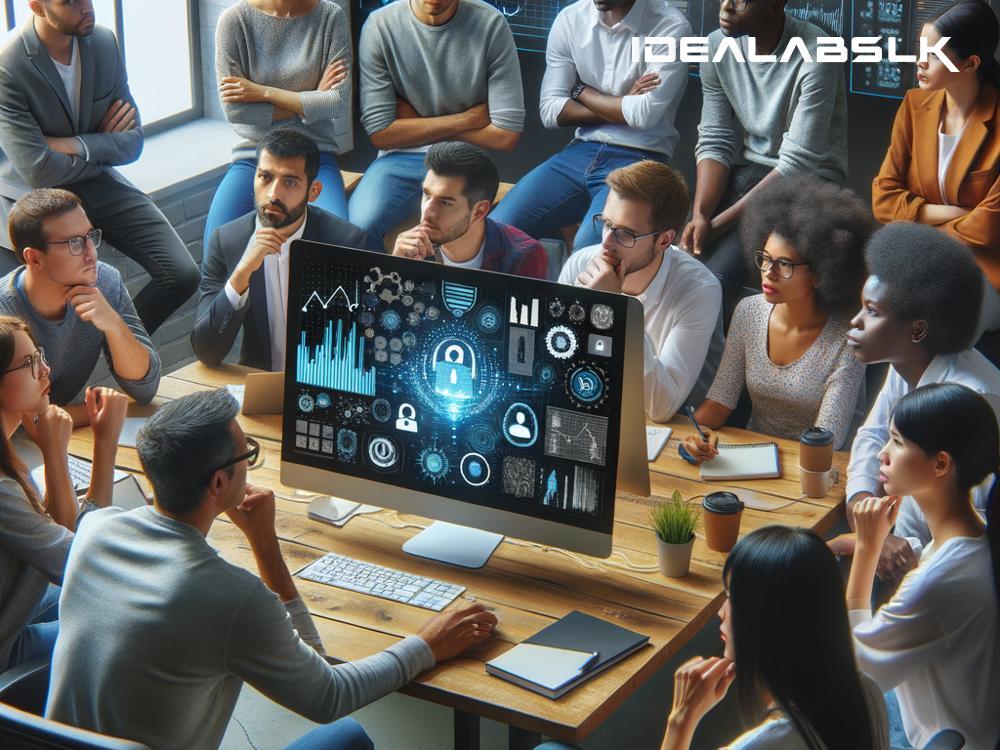The Future of Gaming: How AI Shapes Realistic Virtual Economies in Multiplayer Games in 2024
As we venture deeper into the 21st century, the line between the digital realm and reality continues to blur, especially within the gaming world. One of the most fascinating developments is the emergence of realistic virtual economies within multiplayer games—a concept that's been vastly enhanced by Artificial Intelligence (AI). In 2024, this trend isn't just growing; it's thriving, redefining what we thought was possible in digital spaces. But how exactly does AI contribute to these remarkably detailed virtual economies? Let's dive in.
The Foundations of Virtual Economies
Before we explore AI's role, it's crucial to understand what we mean by virtual economies. Essentially, these are economic systems and marketplaces within online games, where players can earn, trade, and spend virtual currency or goods. From "World of Warcraft" to "Animal Crossing," these economies mirror real-world principles of supply and demand, wealth accumulation, and even inflation.
AI as the Game Changer
So, where does AI fit into this picture? AI technologies are enhancing these virtual economies in three major ways: by creating more dynamic economies, personalizing player experiences, and ensuring fairness and balance.
1. Making Dynamic Economies
AI algorithms can simulate complex economic systems that respond to player actions in real time. Imagine a multiplayer game where gathering a certain resource becomes trendy. An AI-driven economy would automatically adjust the rarity and value of that resource based on demand, just like real-world commodities. This dynamic adjustment creates a more engaging and realistic experience for gamers, as they navigate these ever-changing virtual markets.
2. Personalizing Player Experiences
AI also personalizes economic interactions based on player behavior and preferences. For instance, if you're known for your love of crafting in a game, AI can adjust the economy around your avatar to present more crafting-related goods and missions. This not only makes the game more enjoyable for you but also contributes to a more diverse and rich virtual economy where different players specialize in various niches.
3. Ensuring Fairness and Balance
Lastly, AI helps maintain fairness and balance within these economies. It can detect and correct imbalances or unfair practices, such as inflation caused by resource hoarding or exploitation of game mechanics. Through continuous monitoring and adjustment, AI ensures that the economy offers a level playing field for all players, which is crucial for the game's longevity and popularity.
The Social Impact of AI-Driven Virtual Economies
Beyond making games more enjoyable, these AI-enhanced virtual economies have real-world implications. They serve as simulation grounds for economic theories, offering insights into how markets could operate under different conditions. Furthermore, as players engage with these systems, they learn about economic principles and financial management—skills that are invaluable in the real world.
Moreover, the success of AI in virtual economies opens up discussions about its potential role in managing real-world economic systems. While a full transition is far off and comes with ethical considerations, the parallels drawn from gaming can inspire innovative approaches to economic management on a global scale.
What the Future Holds
As we look to the future, the integration of AI in virtual economies is only set to deepen. We can expect even more sophisticated simulations of economic principles and player behaviors. There's also the exciting prospect of cross-game economies, where virtual assets and currencies could have value across multiple game worlds, thanks to AI's unifying capabilities.
However, with great power comes great responsibility. As AI continues to shape these virtual spaces, game developers and AI experts must carefully consider the ethical implications, particularly concerning data privacy and the psychological effects of highly engaging virtual economies.
Conclusion
In conclusion, AI is playing a pivotal role in creating realistic virtual economies in multiplayer games, making them more dynamic, personalized, and fair. As we move through 2024 and beyond, these AI-driven systems will not only shape the future of gaming but also offer valuable insights and methodologies that could influence our real-world economic systems. The fusion of AI and gaming is not just about entertainment; it's a glimpse into the future of digital and economic interactions.

